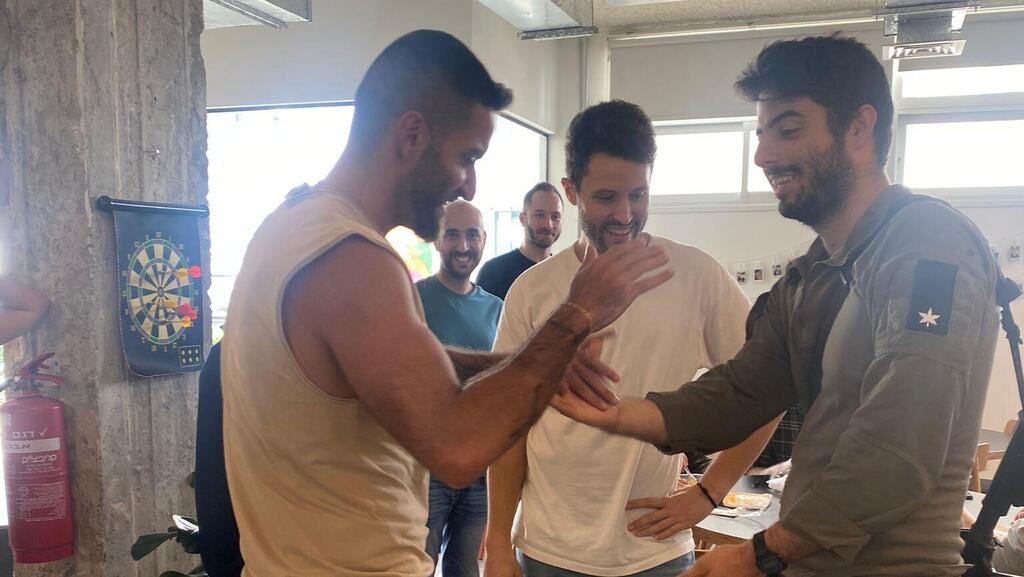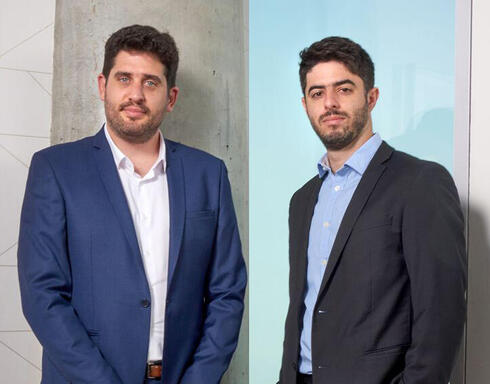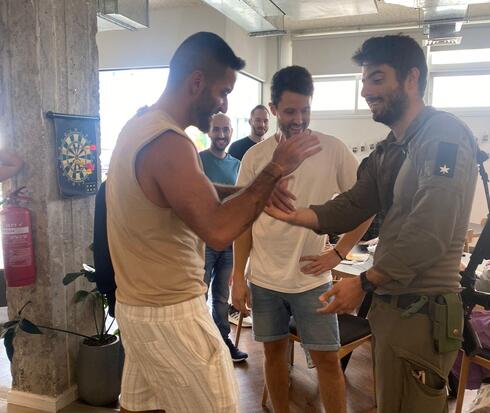
How an Israeli CEO balanced saving lives in Gaza with running his healthtech startup
Alon Joffe, CEO of Eleos Health, talks about balancing being a major in the IDF's combat search and rescue extraction unit and managing a promising startup. "There was a quarter when the company was run without a CEO, but rather by the management team and they were amazing"
At 9:00 a.m. on October 7, Alon Joffe, co-founder and CEO of the startup Eleos Health, and a major in the IDF reserves was already with his unit, 669, which is the Israeli Air Force's combat search and rescue extraction unit. By noon of that day he was in the south helping to evacuate the wounded. "Everything unfolded very quickly. Me and the other guys just took our things and left for the unit as soon as we realized that an unusual event was happening. We found ourselves landing helicopters to evacuate the wounded already in the afternoon of that day," he says.
Joffe continues to serve in the reserves more than three months later. For the first 90 days of the war he was at the front and only recently started to gradually return to work (at his company). "I found myself recruited to the IDF reserves without much certainty about what was going on, without really having the opportunity to update the investors or the employees. After the initial shock, I started organizing the company and my thoughts."
How do you manage a company in such a situation, when you are a soldier who is recruited into the reserves?
"It's very difficult. You can't really do it fully. Those who filled the vacuum are the entire management team, whether it's our American managers or the Israeli managers - who effectively ran the company.. I couldn't really do it, because I had to be completely invested in what was happening in the war, especially with my unit, which saves lives and is connected to many forces. I had to be 'all in' in this matter. Therefore, I had to trust that we have a strong management and it proved to me as CEO how lucky we were to have these people because they just shined. They got together, set up a forum - and started managing the company."
During the reserve service there is a feeling of duality, Joffe explained. On the one hand, how to communicate with the board and the employees while you are in the reserves and on the other hand, the tasks you have in the army, your fellow soldiers and what will happen to you.
"At first I sent a message to the management that I was on reserve duty. They realized very quickly that I wasn't coming back tomorrow morning. Everyone understood that it was going to be a long event. The ones who received the employees in the morning were the CTO, the VP of HR and the VP R&D. Everyone entered a state of duality - Torn between the Telegram, the news media , friends who were killed and the feeling that they are going to work for their friends, for their colleagues in the reserves. My small contribution is that when I return from the reserves, those people have a livelihood and their workplace continues to function. It was really a sense of mission for the employees who remained. After the initial shock, they came to work in order to keep the company going."
At the beginning of the war, Dror Zaide, co-founder of Eleos Health and chief operating officer, who lives in Boston, also decided to get on a plane and come to Israel in order to enlist in the reserves. He was here for three weeks in the reserves and then returned to lead the company from the U.S. "It made it easier for me to know that he was there," says Joffe, "There was a quarter when the company was run without a CEO but by the management team and they were amazing."
During the same quarter the company, which develops AI tools that help mental therapists, also announced the raising of $40 million as part of a Series B round led by Menlo Ventures. The fundraising was closed shortly before October 7, with the announcement being postponed due to the war.
"The war caught startups at many different stages. A company of five or ten employees where suddenly 80% of the employees are in the reserves finds itself in a very challenging situation. We were lucky in the aspect that the war caught us where we already had 100 employees, with money in the bank, with an organized and strong management. It helped me to be 100% focused on the reserves at the start," he says.
Didn't it make you think they might not need you at all?
"In my view, this is exactly what you want to see as a CEO. I was very happy that the company continues to function even when I am not available. That's what I have the management team for, just for events like this. It made me feel how important the role of strong management is. In the end, much of the day-to-day management is not done by the CEO, but depends on the ability of people who lead functions in the company to function together. The place that is a little more complex is maintaining communication with the American investors who need the 'face time' and don't understand the experience we are going through in Israel as well as we do. This can also be resolved through Zoom calls," he says.
Today the company has 105 employees and it will triple its revenues in 2023. "We expect to add 20-30 people to the company in 2024. We also recruited the last round during a difficult time in the startup world, but the company is in a very healthy and growing position. The field in which we are engaged has become all the more vital. The world of mental health and mental therapy is going to be at the center of the needs at the state level and ultimately the people here are very connected to the task of offering better mental health care to people. There is no one in Israel today who does not have the issue close to their heart."
Apart from the CEO, about a third of the company's employees have been in the reserves since October 7, some of the employees knew friends or family members who were kidnapped, killed or injured.
Did the impact of the war on the workers also affect productivity or motivation?
"When thirty percent of the people are not present, it takes time to understand what is needed and the output is obviously affected. In terms of motivation, I think they feel very significant working in a company that deals with mental health at a time when there is the biggest mental health crisis we have ever experienced. People have been working very hard lately, also because many are absent," says Joffe.
Even now, when he returned to work, Joffe remains ready to return to reserve service at a moment's notice. "I am the commander of a unit and there are all kinds of logistical things that need to be taken care of, so it's not like I handed in my army equipment. The nature of the war that we are seeing right now is that it is going to be a long event and the reservists will be needed for long periods and the uncertainty is going to continue to accompany us in the near future. This duality is something we will have to learn to live with."
How do you manage a company in such a situation, when everything is so unclear?
"I think that the pandemic helped the companies that went through the uncertainty that we experienced then to deal with the current crisis. At the organizational level we knew how to relatively quickly activate the transition to an emergency situation and contingency plans. I also understand from conversations with other entrepreneurs that the transition to the emergency was much faster, perhaps also because the disaster was much more sudden than with the pandemic."
At the height of the reserve recruitment, 35% of the company was serving in the IDF, many of them at the level of team leaders and management. "We still have managers in the reserves, three are supposed to return soon, but even here there is a lot of uncertainty because they were told that in a month they may have to go again. We are in a phase of managing with uncertainty because even when people return from the reserves, and I know this firsthand, it's not like you return home on a Wednesday and can start normal work the next day on Thursday. Those who think like that don't understand what the reservists have been through."
Related articles:
What does it mean for you to manage with uncertainty?
"For me, this means, first of all, accepting that the only certainty there is is the uncertainty. I also know this from the 669 unit, the issue of dealing with the uncertainty is central because every event you come across is different, so first of all you have to accept the uncertainty. The second thing for me is to understand what is at the top of the list of priorities and what are the things that are 'nice to have'. What are the projects, the products that we focus on. For us, 2024 is going to be a year of focus and efficiency and part of that is understanding that the war has created uncertainty so that we need to focus on things that are really critical for the growth of the company and put on hold things we said we would do along the way.
"The last thing is the significance of the managers. It's very difficult for everyone but this is where the managers have to be at the forefront. To create as much certainty as possible for people so that they feel that the ship is steering towards the right destination. Let them feel that we know what we are doing and know what we don't know. It is very important that the employees see and feel the managers. That the employees will feel that this thing is being maintained and that we know where we are heading."

